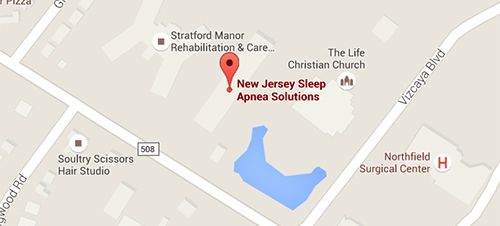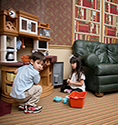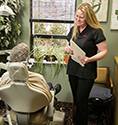National Diabetes Awareness Month: How Sleep Can Lower Your Risk of Diabetes
Submitted by New Jersey Snoring Solutions on Sat 11/26/2016 - 09:00

Numerous studies have found that insufficient sleep is linked to a number of chronic diseases and conditions, including diabetes. According to the Centers for Disease Control and Prevention, more than 29 million people have diabetes. In honor of National Diabetes Awareness Month, Dr. Ivan Stein of New Jersey Sleep Apnea Solutions explains how sleep plays a role in diabetes.
Sleep and Diabetes
According to the National Sleep Foundation, 63 percent of American adults do not get enough sleep to ensure good health. According to a study from the Boston University School of Medicine, people who slept less than six hours a night had more blood sugar complications compared to those who received eight hours of sleep. On the opposite end of the spectrum, low blood sugar can lead to sleep problems. Low blood sugar levels increase hunger, irritability and restlessness during the night.
Additional research has found that people with sleep apnea double their risks of developing diabetes. According to the American Academy of Sleep Medicine, diabetics with severe sleep apnea have poorer blood sugar levels than diabetics with mild or moderate cases of sleep apnea. Unfortunately, sleep apnea easily goes undiagnosed. In fact, the National Sleep Foundation estimates there are more than 18 million Americans who are not aware they have sleep apnea. Common symptoms of sleep apnea include:
- Snoring
- Excessive daytime sleepiness
- Memory problems or concentration
- Irritability
- Mood swings
- Heartburn
Tips for a Good Night’s Rest
If you have diabetes, the best thing you can do is control your blood sugar level. Doing so can decrease your risk of developing co-current health conditions including sleep apnea. What’s more, controlling your diabetes can help you sleep better at night. Regardless of whether you have diabetes or not, you should aim to get about eight hours of sleep a night. Here are a few tips to ensure you get a good night’s sleep:
- Avoid big meals at night
- Avoid alcohol at night
- Limit caffeine and sugar
- Get regular exercise
- Turn off TV, smartphone and other digital devices an hour before bedtime
Learn More about Sleep Apnea
If you struggle to get a good night’s rest due to sleep apnea, please schedule a consultation with Dr. Stein. Dr. Stein is a highly trained sleep specialist with years of experience diagnosing and treating sleep apnea. To learn more about the options the doctor offers, please call New Jersey Sleep Apnea Solutions at (855) WHY-SNORE or (855) 949-7667 today.







